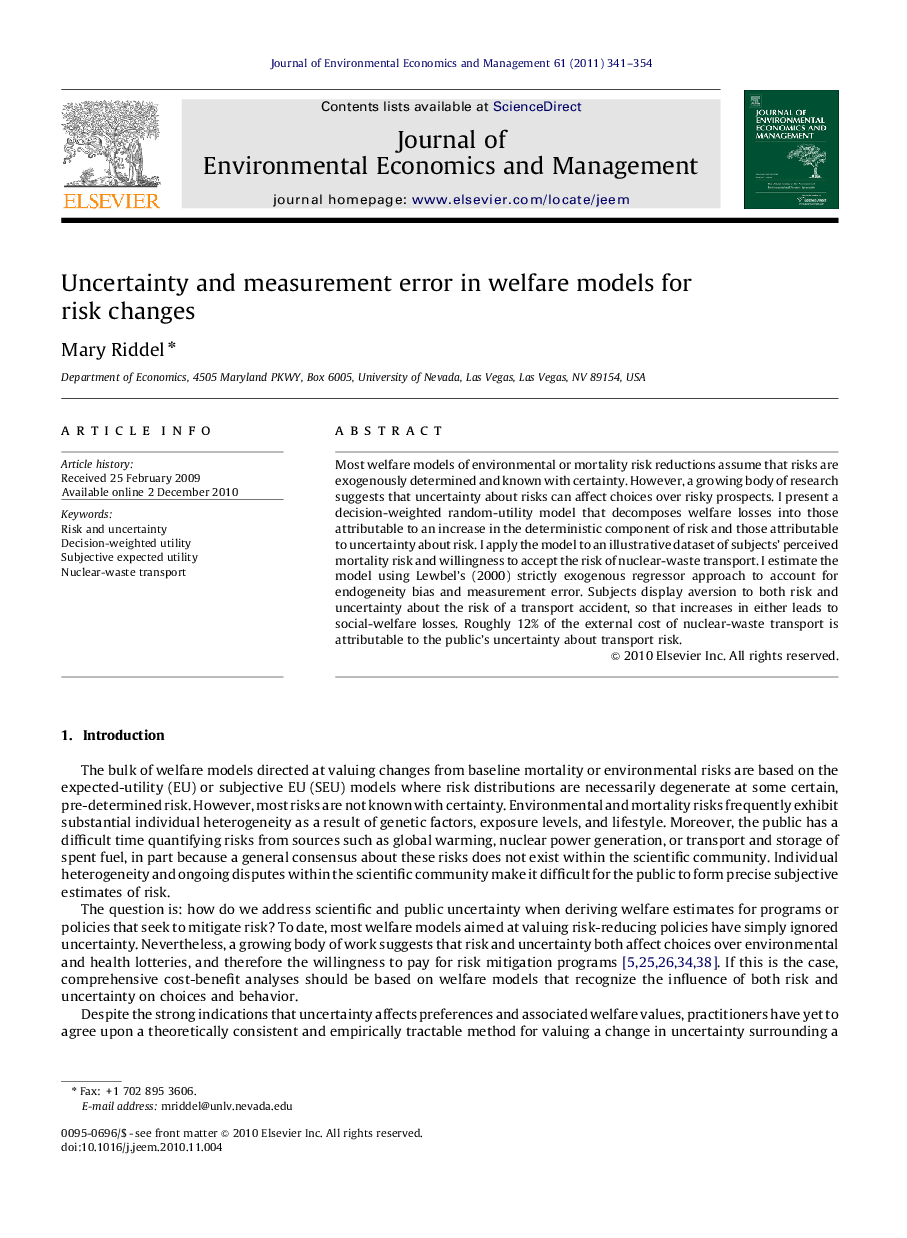| Article ID | Journal | Published Year | Pages | File Type |
|---|---|---|---|---|
| 959050 | Journal of Environmental Economics and Management | 2011 | 14 Pages |
Most welfare models of environmental or mortality risk reductions assume that risks are exogenously determined and known with certainty. However, a growing body of research suggests that uncertainty about risks can affect choices over risky prospects. I present a decision-weighted random-utility model that decomposes welfare losses into those attributable to an increase in the deterministic component of risk and those attributable to uncertainty about risk. I apply the model to an illustrative dataset of subjects' perceived mortality risk and willingness to accept the risk of nuclear-waste transport. I estimate the model using Lewbel's (2000) strictly exogenous regressor approach to account for endogeneity bias and measurement error. Subjects display aversion to both risk and uncertainty about the risk of a transport accident, so that increases in either leads to social-welfare losses. Roughly 12% of the external cost of nuclear-waste transport is attributable to the public's uncertainty about transport risk.
